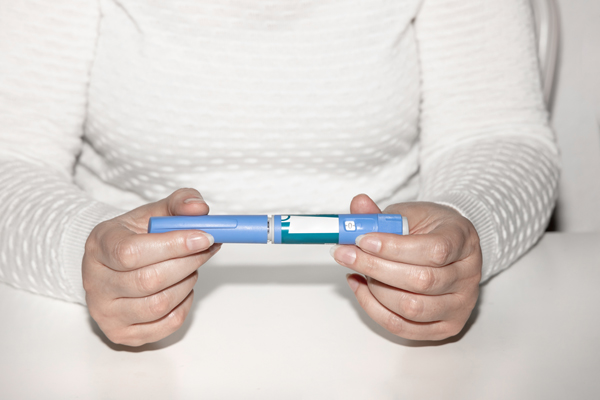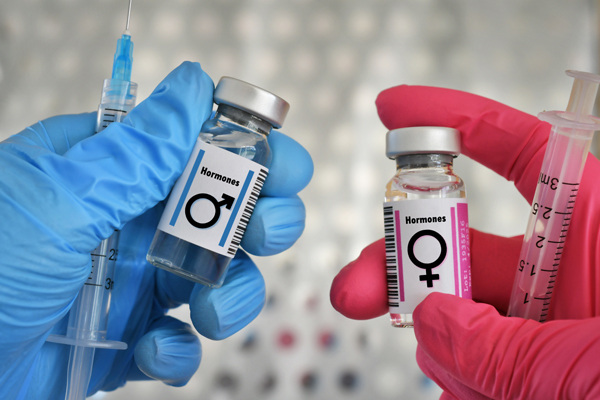Hormone Replacement TreatmentFriendswood, TX
Hormones affect the body and mind in patients of all genders. This is particularly true for patients going through menopause or experiencing male hypogonadism. Hormone replacement treatment can help ease unwanted symptoms from hormone fluctuations, increasing general health and mental well-being.
Reset Medical provides hormone replacement treatment to patients in Friendswood and the nearby communities. If you have been experiencing hormone-related issues that have negatively impacted your life, our team is here to help minimize that impact. Schedule an appointment with Dr. Hethcox at 1-281-816-4707 today.
How Hormone Replacement Treatment Works
Hormone replacement treatment aims to combat decreases in hormone production, which often come with aging. More commonly known as HRT, these treatments accomplish this through medications that contain estrogen, progestin (synthetic progesterone), or testosterone. We can prescribe HRT medications in pill form. Alternatively, hormones may be administered via an injection, through patches applied to the skin, or as topical gels or creams.
“Hormone replacement treatment aims to combat decreases in hormone production, which often come with aging.”
Common Uses and Applications for All Genders
Patients of all sexes and genders may benefit from hormone replacement treatment. One of the most common uses among female patients is to get relief during menopause. To see results, these patients would be given either estrogen and progestin or only progestin.
While male patients do not experience menopause, they may experience symptoms related to a decrease in testosterone levels, like erectile dysfunction (ED). Male hypogonadism, a condition marked by extremely low testosterone levels, even has symptoms similar to menopause. Fortunately, these symptoms can be combated with testosterone replacement treatment.
With both menopause and male hypogonadism, the severe decrease in hormone production can cause symptoms including, but not limited to, the following:
- Hot flashes
- Mood swings
- Hair loss
- Low sex drive
- Weight changes
Of course, these symptoms may affect each patient differently. Weight changes for male patients may manifest as breast enlargement, while it typically looks like decreased breast tissue in female patients.
For transgender and nonbinary patients, hormone replacement treatment looks a bit different. Although both estrogen and testosterone are naturally present in every patient, which is dominant in the body differs based on biological sex. Thus, HRT as gender-affirming care strives to change which hormone is dominant in the body, often causing puberty-like changes. There are both estrogen- and testosterone-based HRTs that can play an integral role in the patient’s transition.
“One of the most common uses among female patients is to get relief during menopause.”
When To Consider Hormone Replacement Treatment
It can never hurt to consult a healthcare provider about hormone replacement treatment. However, most patients are motivated to seek HRT after dealing with uncomfortable symptoms related to a decrease in estrogen or testosterone production. Examples include:
- Constantly feeling uncomfortable, such as due to hot flashes
- Fatigue and sleep disturbances
- Muscle or bone loss
- Feelings of depression
- Acting out of character
- Gender dysmorphia (for LGBTQ+ patients)
If these symptoms interfere with daily routine, decreasing one’s quality of life, the patient should schedule an appointment with us about hormone replacement treatment as soon as possible. The sooner the patient does so, the faster they can find relief while minimizing the symptom’s impact on their health in the long term.
“However, most patients are motivated to seek HRT after dealing with uncomfortable symptoms related to a decrease in estrogen or testosterone production.”
Advantages of Hormone Replacement Treatment
The primary benefit of hormone replacement treatment is how it helps balance hormone levels to the proper amount, improving mental health. For patients seeking HRT for menopause, this leveling out of hormones can result in a reduction in menopausal symptoms, such as hot flashes, night sweats, sleep disturbances, memory issues, vaginal dryness, pain, and urinary trouble.
It can have the same effect on male patients with lower testosterone levels — clearing up symptoms of hypogonadism, erectile dysfunction, and balding, among others. For both sexes, it can also help prevent osteoporosis by slowing or stopping bone loss resulting from hormone changes.
For transgender and nonbinary patients, the advantages of HRT can be life-saving. For many, it is a key part of the solution to gender dysphoria. Note that HRT may be done in combination with other gender-affirming care or on its own for a short or long period of time.
“The primary benefit of hormone replacement treatment is how it helps balance hormone levels to the proper amount, improving mental health.”
How To Reduce Risks and Side Effects
Short-term side effects of hormone replacement treatment include mood swings, acne, and breast tenderness and changes. In the long term, HRT can increase one’s risk of blood clots, stroke, heart disease, and breast, uterine, or prostate cancer. It is not recommended to receive HRT if a patient has a history of any of these health conditions.
Following a healthy lifestyle that includes dieting and exercise can help with HRT side effects. However, other ways to minimize issues include visiting a health clinic for routine testing and health screenings. These appointments also give patients the opportunity to discuss any current side effects and whether anything can be done to solve them.
“Following a healthy lifestyle can help with HRT side effects.”
Questions Answered on This Page
Q. What is hormone replacement treatment, and how does it work?
Q. What is hormone replacement treatment commonly used for?
Q. What are common signs that hormone replacement treatment might be right for you?
Q. What are the benefits of hormone replacement treatment?
Q. How can you reduce the side effects of hormone replacement treatment?
Frequently Asked Questions
Q. Who is eligible for hormone replacement treatment?
A. Strong candidates for hormone replacement treatment are those with good overall health. Since HRT increases the risk of blood clots, stroke, and heart disease, it is not recommended for patients with a personal or family history of these conditions. It is also not recommended for patients with a family history of certain cancers.
Q. Is there hormone replacement treatment for men?
A. Yes, male patients can benefit from hormone replacement treatment if they are experiencing a decrease in testosterone levels. While HRT is often thought of in relation to menopause, testosterone replacement can help male patients combat hypogonadism, erectile dysfunction, and other symptoms. It may also help with hair thinning and balding.
Q. How long will it take to see results from hormone replacement treatment?
A. Most see positive results within the first few weeks of starting HRT. However, seeing the full effects could take three to six months. Note that it is also normal for patients to experience short-term side effects, like mood changes, that improve over time..
Q. What is the expected treatment time?
A. Treatment times vary. When used to treat menopause, patients will likely only need hormone replacement treatment for up to five years. Male patients and transitioning patients typically use HRT for the long term.
Q. How do you pay for hormone replacement treatment?
A. Payment depends on the type of HRT a patient receives. After undergoing a consultation with our office, one of our team members can help break down the costs of the total treatment. Of course, patients are encouraged to contact our office at any point with questions or concerns.





